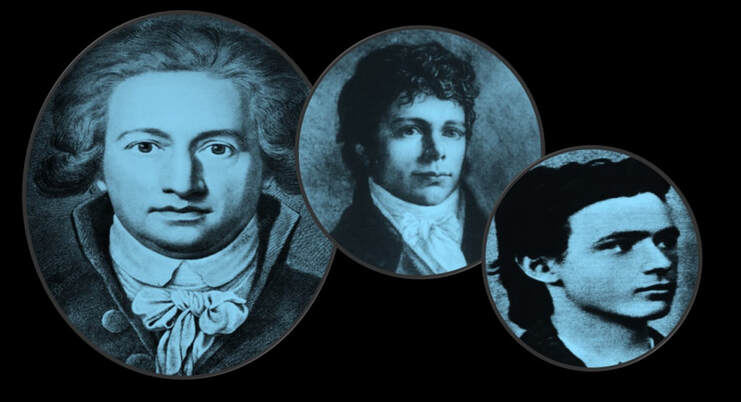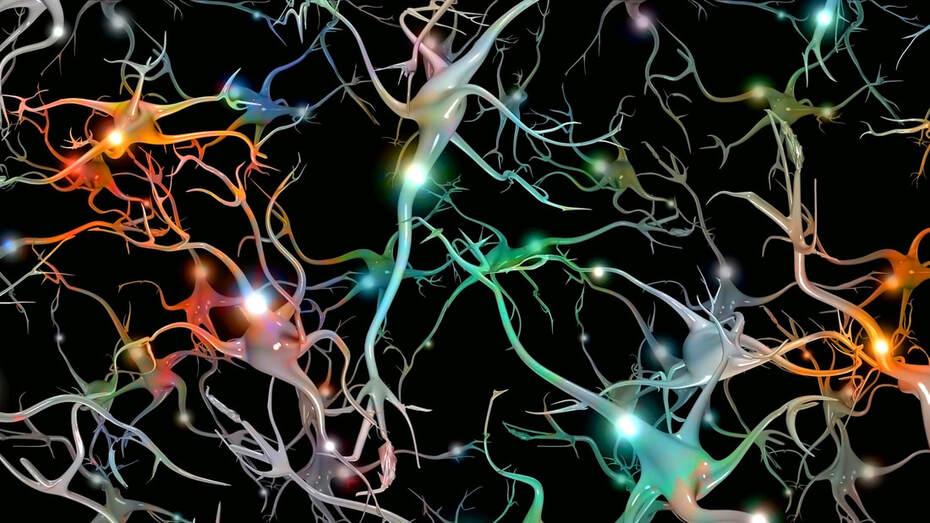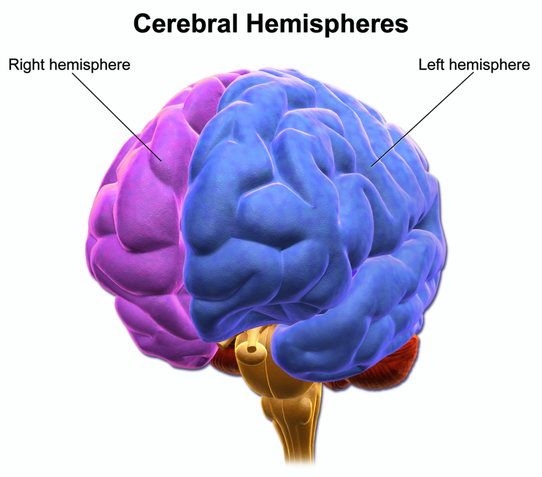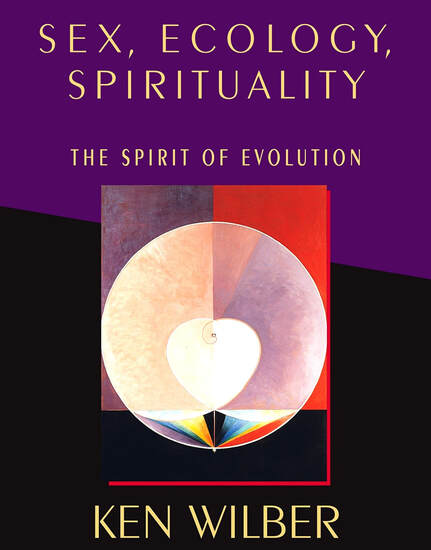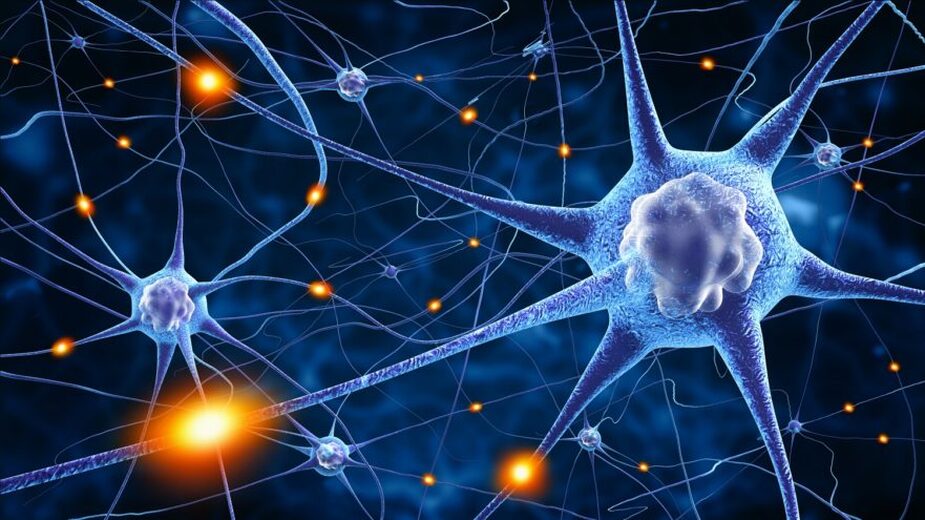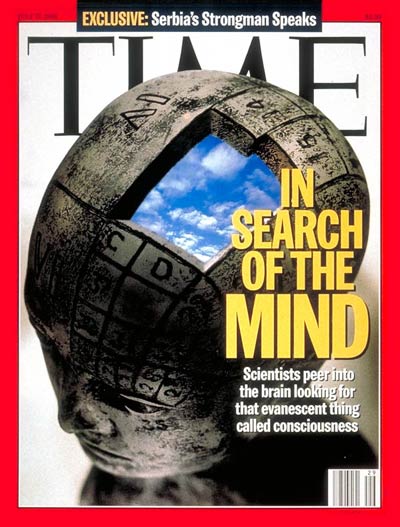AGE OF IDOLATRY by Michael Tsarion
The menu is not the meal – Alan Watts
In previous work I’ve often made mention of Talismanic terms. The word denotes certain words, names, utterances, signs, symbols and ideas with the power to enthrall minds and change behavior against one’s will.
In this short article I wish to expand upon this concept and give it a wider context. Talismanic magic, as it can and should be called, is part of the larger and more important phenomenon of Idolatry.
This is the term coined by the great philosopher Owen Barfield, who insisted that we live in an Age of Idolatry.
English linguist and philosopher Owen Barfield (1898-1997), was a close colleague of C. S. Lewis and member of the Inkings. He was a disciple of Samuel Taylor Coleridge, one of England’s greatest poets, and of Rudolf Steiner. Coleridge was the chief British proponent of the philosophical ideas of the great Idealist Friedrich Schelling. Barfield’s reputation was somewhat occluded by the worldwide popularity of his colleagues C. S. Lewis and J. R. R. Tolkein. There can be no doubt, however, that Barfield was by far the greater thinker.
Barfield’s ideas on the subject of Idolatry are impossible to encompass in a short article, but I wish to dwell on one important application of what is meant by Idolatry. I wish to highlight the way we as a species are addicted to the idolatry of words.
Think of the most Talismanic term of all time – God. Think of how addicted humans are to it. Observe what happens when you hear it.
Take science as another example. Throughout the decades and centuries certain Talismanic terms have taken hold of minds dedicated to a scientific outlook. This includes the word “science” itself. It carries an aura of sorts, and resounds with authority and umpf. The world’s silliest person can say “I just believe in science,” and come across as intelligent, savvy and “with it.”
Think of the name “Darwin.” When we hear this word spoken by most scientists, it’s almost always uttered as if it is in all caps, bold, underlined and highlighted. It is not only a name and word that mesmerizes science buffs, it haunts them. It definitely wears a crown and exudes a majesterial aura. Hearing trumpets one bows before it. On your faces before the Pharaoh.
It’s not much different with other names, such as Galileo, Copernicus, Kepler, Bacon, Newton, Descartes, Einstein, Marx, Churchill, Obama, Trump, etc.
If one points out that such names are a matter of idolatry, one is dismissed by those who rightly say that it’s good and necessary that accomplished men are remembered and revered. But that’s not the point.
The Idolatry addressed here is a matter of the words themselves and what they subtextually connote. The point is that our world is saturated in Idolatry, and so are our minds.
All I need is a sheet of paper and something to write with, and then I can turn the world upside down – Friedrich Nietzsche
The latest “big” Talismanic term, particularly adored by modern scientists, is “Complexity.” What jollies it gives them. Each and every Materialist is enamored by the term. Not one of them opens their mouths without blurting it out. And they generally mean the same things by it. It’s the latest catch-phrase or in-word signalling support for the paradigm of Materialism. Which is ironic, since the paradigm died years ago. Lights have been kept burning in the ivory towers, to be sure, but only to hide the unpalatable fact that Materialism lives no more in the corridors of academia. Those in the know are, as we speak, desperately dismantling the bankrupt paradigm and moving the furniture around. Looking for a way out, they make good use of certain non-Materialist theories. These they smuggle in, massage, and use to revamp their barren worldview.
Because of the discoveries of great thinkers, such as Stuart Hameroff, Iain McGilchrist, Rupert Sheldrake, Charles Tart, Ken Wilber, Bruce Lipton, Robert Lanza, Irwin Lazlo, and others (not to mention those of leading quantum theorists) a great many open-minded thinkers have grown dissatisfied with the usual fare of the reductionists. Some experts reluctantly and obliquely concede the fallout.
Johann von Goethe (1749-1832), Friedrich Schelling (1775-1854) and Rudolf Steiner (1861-1925). Goethe was Europe’s greatest intellectual and polymath. He took the young Schelling under his wing, becoming his personal tutor. Coleridge and Barfield were the foremost British proponents of German Romantic philosophy, adding a great deal of their own thought to the mix. Barfield fused the teachings of Goethe, Schelling, Steiner and Coleridge. Sadly, his work didn’t receive the recognition it deserves.
Even the goat-bearded high priests of reductionist science can’t help quipping about the limits and failures of their breed. Under their breaths and between clenched teeth, a few even admit the existence of the mysterious deeper complexity below the limen of consciousness:
At some level of complexity, the brain does have the capacity to give us an awareness of things around us…nobody has any idea what this is or where it is…They’ve now found that internal to cells you get computational properties. The cerebellum has huge cells – purkinje cells – and there’s some evidence that internal to those cells you’re finding computation going on, conditioning going on…and there’s massive computational capacity once you get into cellular structure. So maybe neuroscience is just looking in the wrong place, and we’ll have to have some totally new direction – Noam Chomsky (Recent Interview)
Okay, thanks for telling us that billions have been wasted exploring dead-ends. But what’s surprising about it? Materialism as a philosophy was doomed from the start. Its current benighted rhetoric about complexity won’t save it.
Its been noted that many Materialist scientists frequently make statements that run contrary to the basic principles of science. They do so when and if they deny the existence of phenomena not yet falsified. The open-minded approach is to err on the side of existence and possibility, not negation and impossibility. It’s a simple but important difference in mindset. If I have not yet proven the existence of other life-forms in the universe, for example, do I automatically believe that extraterrestrial life doesn’t exist? What does that say of my level of consciousness and curiosity? In cases like this, is it not more fair for science to declare itself agnostic on the matter, and saner to err on the side of future possibility? To categorically state the opposite is hardly “good science.” Yet this is what arch-materialists do time and again. It’s not science they’re into, but Scientism. And that’s surely an example not only of dogma, but of Idolatry.
But let’s return to the word “Complexity,” the latest Talismanic term used by reductionists to negate the existence of mind.
Mind, they say, is merely an accidental “spark” of all-too-physical biological systems. There’s no deep mystery to it. Mind must be regarded simply as a gaseous epiphenomenon produced by the complex interconnecting systems of the brain and nervous system. This is the case if one accepts mind’s existence in the first place, which many experts do not. So much for ivory-tower absurdity.
Most of the world’s Materialist scientists hungrily accept this without question. It serves them well, and puts paid to further contemplation and comment on the conundrum of consciousness.
It is, of course, wholly unacceptable, and by no means explains the peculiar self-reflexive capacity of mind, its distinctive ability to stand back and surveil itself.
Everything we know about mind is by way of mind. That’s a pretty impressive feat for something that doesn’t exist.
This curious and constant act of self-surveillance is a mystery that can’t be reduced by sane people, and science has not cogently explained it. It has merely explained it away.
The peculiar self-awareness of consciousness may derive from the complex interaction between brain and mind. However, to categorically reduce mind to brain-activity is a dubious act of reductionism unworthy of science. Mind cannot be exclusively attributed to the workings of our brains. This is because, as neuroscientists well know, the brain is actually divided into asymmetrical hemispheres which do not agree with one another and which operate a great part of the time at loggerheads. Difference rather than consensus, discord rather than harmony, is the norm with brain-function.
Deconstructing Materialism starts by noting what the brain does not do. What are its weaknesses and incapacities? Is it really powerful enough to be the producer of the “effect” we call mind?
The first fact compromising this assertion concerns the precise function of the so-called Left-Brain, which acts as a limiter on consciousness. In this capacity it certainly cannot be cited as having any sjgnificant role in the creation of what we call mind. If it is so omnipotent and self-aware, why does it know next to nothing about Right-Brain activity and output? Why does it block, censor, compress, canalize and object to content from it’s own counterpart? Is this not a definite sign of its limitation and conservatism? In short, the capacity and functions of the Left-Brain are far too inhibitory and economical for it to be the “cause” of something as plastic, omni-directional and numinous as mind. And although the Right-Brain is, relatively speaking, a better candidate, it is far too circumscribed and censored by the Left-Brain to be the origin of mind.
Clearly, the dynamic between conflicting “sparking” brain matter is not the cause of mind. Mind is not a phantom of purely physical forces. It’s more likely to be the other way around.
The stream of knowledge is heading towards a non-mechanical reality; the universe begins to look more like a great thought than like a machine. Mind no longer appears to be an accidental intruder into the realm of matter…we ought rather hail it as the creator and governor of the realm of matter – Sir James Jeans
The hemispheres of the brain haven’t got what it takes to be the source of “mind” let alone Spirit. Back to the drawing-boards boys, and quick.
The layperson has been taught that when the brain is in some way disabled by major damage, consciousness ceases. However, contra this common assumption, recent experiments show that despite serious brain-damage, particularly to the Left-Hemisphere, consciousness still exists. In fact, people with Left-Brain damage report experiences of a highly ecstatic and numinous kind. Naturally, if both hemispheres are damaged no report can be made as to whether consciousness remains or not. The inability to communicate, however, does not mean consciousness is obliterated.
Philosophically speaking, the Materialistic paradigm was long ago compromised by many eminent thinkers, such as Johann von Goethe, Friedrich Schelling, George Berkeley, Owen Barfield, Rudolf Steiner, A. N. Whitehead, and others, who pointed out that visible, identifiable complexity is the result of even greater complexity underlying it. This goes for the systems and subsystems of the brain, nervous system, or whatever one observes. Complex systems do not arise from simple systems or structures, as most believe. This is, in fact, an illusion brought about by narrow thinking, superficial observation and skewed perspectives. Technically speaking, it’s due to hierarchical perspectivism.
Ken Wilber’s masterly work delineates the true nature of hierarchy abd shows how science comes to make endless mistakes by remaining ignorant of the true nature of hierarchical structures. (Click here for more recommendations.)
That the deeper complexity is invisible to the senses, does not mean it does not exist. Upper systems that are measurable and classifiable have inbuilt limits preventing them becoming cognizant of their roots. If it were otherwise, the upper or “higher” levels of consciousness would freeze and cease working effectively. They’d be flooded and rendered useless. They work efficiently via exclusion and focus and do what they do without apprehending the immensity of that which brought them into being.
There are more potential connecting pathways in the brain than there are particles in the universe – Iain McGilchrist
The lower systems upon which upper systems stand and depend are part of the Implicate Order. They are enfolded and not directly available to Left-Brain awareness. It is via intuition that one knows about the numinous reservoir of gnosis giving rise to ego-consciousness. Without the presence of deeper complexity, consciousness would not exist or possess the capacity of self-awareness. It is ludicrous to reduce this greater complexity to body and brain-function.
It is, therefore, logical (and scientific) to define “mind” as our word for the deeper complexity as yet denied by mainstream science.
…Thomas Hobbes bracketed off spiritual matters entirely from the realm of acceptable human investigation. Agreeing with Bacon about the limitations of human reason, Hobbes asserted, in the Leviathan, that knowledge of the physical world is more suitable to man’s mental capacities…Claiming that all thought originates in physical experience, and that all mental activities are similarly derived from sense – Sheila Spector
The tomfoolery of Materialists lies in their persistent irrational denial of this fact. To admit fault, in this regard, is to see the end of their rotten edifice and absurd reductionist outlook.
But all is not well within the sterile corridors of mainstream science. One does not need to look to external assaults because many an insider, at the highest level of the academic totem-pole, has dutifully brought the hammer down on Materialism’s unworthy head:
…mathematics may be defined as the subject in which we never know what we are talking about, nor whether what we are saying is true – Bertrand Russell
The propositions of mathematics are devoid of all factual content; they convey no information whatever on any empirical subject matter – Carl G. Hempel
Be that as it may. Let us recall that in the seventeenth century, Materialists firmly believed in tabula rasa. They believed the mind to be a “blank slate” upon which allegedly material objects made “impressions” via the senses. Despite the fallacy of this theory, its proponents forgot that a blank slate must still possess the innate property of receptivity in order to receive impressions at all. In which case it is certainly not “blank.” Simply put, the blank mind has one innate property after all – blankness.
Any physical slate, screen or canvas has properties, so why this idiotic theory? And if the mind were truly “blank,” it wouldn’t be able to receive impressions of any kind. Remember this theory of tabula rasa was a premise accepted by Materialists everywhere. It is still held onto by most of them.
Materialists also propounded the existence of primary and secondary properties. This means that every object perceived is perceived because it has two distinctly classifiable kinds of qualities. Secondary properties are those projected by the mind (which they said doesn’t exist), whereas primary properties are those inherent within the object itself, independent of any act of perception and conception.
Eventually, Materialists had to realize the error in both theories. If secondary properties exist, there must be a mind projecting them onto matter. And if primary qualities exist, why are they not found? Where are they hiding? Peeling off secondary properties was supposed to reveal the all-important primary qualities. To the chagrin of scientists everywhere, there is no hard measurable material “canvas” there upon which secondary properties rest. An object isn’t quite the solid, verifiable thing it is taken to be. Oops!
Neither atoms, nor even subatomic particles, are real. They form a world of potentialities or possibilities rather than of objects or facts – Werner Heisenberg
Confirmed hardline Materialists don’t accept that there’s a mind “projecting” anything onto reality. It’s all a matter of the brain. Well, this only tells us that the brain isn’t as smart as they claim. If it projects properties onto a canvass that, on deep inspection, is found not to exist, what are we to make of the intelligence of the brain and of Materialists? As the great Idealists continually warned, such notions lead only to confusion. They come from a deeply erroneous view of the nature of reality. For Idealists, mind is not something confined to the head, as is the brain. Mind is both internal and external. When we accept that mind is all, there can be no question of primary and secondary properties or inner-outer projection, at least not in the dry way Materialists conceive it. This is what we believe when we refuse to accept the truth about the all-pervasiveness of mind.
Irish Idealist Bishop George Berkeley (1685-1753) thought it a simple matter to disprove the absurd tenets of Materialism. Idealism holds that mind configures both inner and outer worlds. The human mind projects secondary qualities, as Materialists concede, but it is the mind of God that projects or creates primary properties. It’s all a matter of mind or Spirit either way. No need for any fuss. When updated correctly, Berkeley’s essential description of the synergy between microcosm and macrocosm still holds true. His intellectual successor, William Blake, took the case for Idealism even fiurther.
Materialists of the seventeenth century also thought it an absolute certainty that a cause resulted in an effect. Nothing could be clearer, right? When I open a window and feel a breeze on my face, the one act causes the other, right? If one billiard ball strikes another, it causes it to roll across the table, right? No, said philosopher David Hume. There is no necessary or certain connection between a cause and an effect. What appears to be the common sense case, is not certain and true. It’s nothing more than an contingent assumption and convention based on familiarity and superficial apperances. The findings of later quantum theorists proved Hume completely correct.
The stuff of the world is mind stuff – Sir Arthur Eddington
In fact, quantum theorists established once and for all that science is in complete error to negate that which isn’t registered by the five senses or measured by the brain. They’ve long proven that even though a thing is invisible, it still exists.
For Barfield, reductionist science amounts to an age-old experiment in Idolatry; believing something true as long as it backs one’s irrational beliefs about reality. It’s science without sense, sensitivity and genuine curiosity.
For centuries, “Causality,” and the high-sounding Latin phrase tabula rasa, enthralled science buffs. Later came terms such as Big Bang, entropy, singularity, multiverses, string-theory, dark matter, quantum, quarks, entanglement, indeterminacy, emergence, and so on. In the political world we have terms such as Socialism, Community, Globalism, Multiculturalism, Diversity, Progressivism, Equity, Tolerance, etc.
Again, it’s nothing but Idolatry, by which one prostrates themselves before the term or word, rather than the actual fact or truth. One does it without a clue as to what they’re doing. Plenty of science, but not a modicum of psychology or reflection. Plenty of observation, but no insight.
It is ironic that, as materialists trust their experiences of observing, analyzing, and drawing conclusions concerning matter, they base their trust on something that cannot be examined – Albert Linderman
Almost from the outset, the proponents of Materialism decided to contemptuously ignore what was called “subjective” phenomena. Statements and claims had to be “objective” to be deemed worthy of attention. A claim or proposition must be objectively verifiable. It has to be measured, tested, classified and repeatedly proven by experiment in order to be added to the cache of human knowledge.
…common sense today assumes that it is the outer world that is real and permanent, while the inner experience we call consciousness, or subjectivity, or our own or our self, is a fleeting unreality to which it somehow gives birth from time to time – Owen Barfield
Now that this idiotic premise has been obliterated by high-ranking thinkers, orthodox science is in a pickle. Behind the scenes a lot of carpets are being chewed, and a lot of walls climbed. But the meltdown is not on display, and the public is being well and truly deceived by some crafty smoke and mirror-play.
Actually, it won’t be long before we become aware of the swindle and zeitgeist change. We’re on the cusp of a “new science” that does reluctantly accept the veracity of subjective data. It’s quietly being elbowed into the limelight. It’s not happening because science has a genuine interest in it. On the contrary, it’s happening because science has no other option. The last of its absurd paradigms have failed to bolster the edifice of Materialism, and a public turnabout is inevitable. The superlative discoveries of David Bohm, Arthur Koestler, Ken Wilber, Rupert Sheldrake, Iain McGilchrist, and a slew of others, have shattered reductionist science forever, and there’s no going back.
As far as the laws of mathematics refer to reality, they are not certain; and as far as they are certain, they do not refer to reality – Albert Einstein
…science and its materialistic paradigm is no closer today than it was a hundred years ago in solving the problem of human consciousness – Albert Linderman
Owen Barfield explained that the Age of Idolatry won’t end until we see it for the lie it is. Whether our idolatry is towards words, names, ideas, icons, or all of it put together, it persists until we awaken from its spell.
It starts with the individual, because there can be no collective awakening in this regard. Although it is factual to say that the entrapment is universal, it is also true that freeing oneself from Idolatry comes only when there is, on the individual level, an overwhelming desire for it. It’s a tricky business because, as we’ve seen, the human desire for freedom can itself become a kind of idolatry. We’ve had many an instance of rebelliousness in history, and many an incendiary act against authority. But when all is said and done, man remains enslaved, even by his ideas about “freedom.”
Is freedom just a word? Is there any evidence showing that we genuinely care about the thing itself?
The limits of my language means the limits of my world – Ludwig Wittgenstein
The very idea that someone or something will free us, is itself an idolatrous notion. The idea that a god or savior will descend to liberate us from our ignorance and want is purely idolatrous. That I can explain myself to another using language, is also idolatrous. That some prescribed medication works to restore me to health, that some holy book solves all my quandaries, that this or that amount of money will make me happy, that I can trust a friend or lover, that I can rely on science to cure the world’s ills, that a new political movement rights all wrongs, etc, is all a matter of Idolatry.
As Barfield explained, it appears that we are literally addicted to idols, icons, causes, ideals and political talismans. It’s caused by a kind of sickness or delirium which has plagued humanity since ancient times.
The condition is no more apparent than when we make statements about the ancient past. Barfield doesn’t accept any of it. What we think we know about ancient man is almost entirely fallacious. It’s a matter of prejudicial projections onto the past. Science is not the answer, because, as said, it chose to omit subjective factors. What a travesty, says Barfield, because this folly left a mighty gap that still waits to be filled. Telling us what ancient men wore, how they fed their bellies or conducted war, does not tell us who they were. It does not tell us how they felt or what kind of consciousness they had. What we say we “know” about ancient peoples is merely what we think we know about them and their times. And, as said, our thinking about everything is little more than Idolatry.
We’re not only victims of faulty paradigms but of the kind of thinking which brings paradigms into existence and then replaces one with another, ad infinitum.
The high-priests of Materialism speak of the supposed divide between subject and object. They speak of inner and outer worlds, as if there’s some hard line between them. Their definition of inner states of mind or thought are contextualized in terms of the external world of measurable objects and entities. As far as their narrow Cartesian paradigm goes, that which exists within us as mental phenomena is not in the world. It’s on the other side of the limen demarcating the mental from the material. Okay, but isn’t a human being’s body in the world? That which physically contains brain and mind is in the world as a concrete measurable entity? Is it not, therefore, perfectly logical to say that minds are in the world as well as in the head? It would be a rational statement if we weren’t lost in word-idolatry, enslaved to the terms “subject” and “object,” and “mind” and “matter.”
If mind is in the world, and if world is in our heads, what can be said of the hard Cartesian divide so important to science? Apparently, mind and world have a relationship scientists haven’t noticed.
Thinking must never be regarded as a merely subjective activity. Thinking transcends the distinction of subject and object. It produces these two concepts just as it produces all others – Rudolf Steiner
…we neither discover an objective reality nor invent a subjective reality, but that there is a process of responsive evocation, the world ‘calling forth’ something in me that in turn ‘calls forth’ something in the world – Iain McGilchrist
Barfield accepted Blake’s view of humanity’s spiritual fall. The loss of Fourfold Vision gave rise to the Age of Idolatry, with Idolatry as the kind of thinking which provides a shield against reality. Our revered icons, ideals, standards, father-figures and Talismanic words insulate us from a deeper “original participation” with reality. Although lost, this ecstatic state of being is still nonconsciously craved by idolatrous humans. In fact, it’s the reason why Idolatry exists in the first place, as a replacement for a more oceanic sense of belonging and participation with the cosmos. Idolatry is a form of craving for something long lost and currently unavailable. As ages passed, idolatrous objects came to stand-in for what they replaced and symbolized. This travesty led to the rise of religion and science, which in their own ways reinforce and codify the lineaments of Idolatry. They ensure that we remain trapped within the cage of idolatrous thinking.
The religions of humanity, too, must be classified as mass delusions – Sigmund Freud
I pray to God to rid me of God – Meister Eckhart
An examination of the human world confirms the points made here. What, after all, is the reason for sport and sports arenas? What is “winning the gold” or the trophy about? Getting rich is always a good thing, but what is a dollar bill? What do paper notes and coins represent? Are they not worshiped in and of themselves? Why does a scientist or inventor want a Nobel Prize? Why do I love my big-screen TV? Why do people assemble before a school-teacher, statesman, priest, bishop or pope? Why assemble for public extravaganzas and spectacles? Why do I have a photo of my guru on my fridge door? Why do teens have posters on their walls featuring pop-icons? What is fashion? Why are there monuments in Washington DC? Why sing hymns to flags? What’s so important about a platinum blonde? Why does a middle-aged man buy a Harley-Davison motorbike? Why do we crave autographs and memorabilia? What’s the purpose of a Selfie?
One of the most conspicuous images or icons in our world is that of woman. Her image is found on giant billboards, magazines and many commercial advertisements. Are not young impressionable girls deeply affected by what they see portrayed? Can it not be said that their idea of femininity is heavily conditioned by these images? Is not the real shaped by the ideal?
A young girl idolizes the images surrounding her, taking them to be wholesome examples of what it means to be female. Knowing this, we still refer to the girl as the “real” thing. However, since her personality is largely constructed of images, we must concede that the image is also real, which is seemingly a contradiction. But is it? asks Barfield, Baudrillard, McLuhan and other thinkers on communication and modern media. Maybe a magical transformation has taken place.
Maybe there’s no longer a substantial existential difference between person and image. The latter has forcibly intruded into the place occupied by the former. As Jean Baudrillard warned, the simulacra has become the real and the real has become the simulacra. They’re interchangeable. Reality TV is more real than reality which now conforms to the image of itself.
French philosopher Jean Baudrillard (1929-1977).
Idolatry is our shelter. Language doesn’t facilitate our dialogue with reality, only with the image of it. We are not in touch with reality, only with our ideas about it.
Man’s mind is so formed that it is far more susceptible to falsehood than to truth – Erasmus
The way out of the labyrinth of Idolatry is to realize that when we speak we don’t mean what we say, and cannot mean what we say. That’s just a matter of self-deception. Meaning is secondary to something else. We might say that the word conceals the meaning, or as Barfield emphasizes, word replaces meaning.
The saying is severed from its supposed meaning by the veil of metaphor and our addiction to the word as idol. It’s the word, not the silence, we bow before and hold most sacred. Meaning has been lost while we’ve filled our world with a cacophony of Talismanic words. We live inside our language, insulated against meaning and reality. The more chatter, the less meaning, and the less meaning, the more talk. When the Age of Idolatry collapses, and we go down with it, one thing is certain – we’ll still have a lot to say.
. . .
. . .






